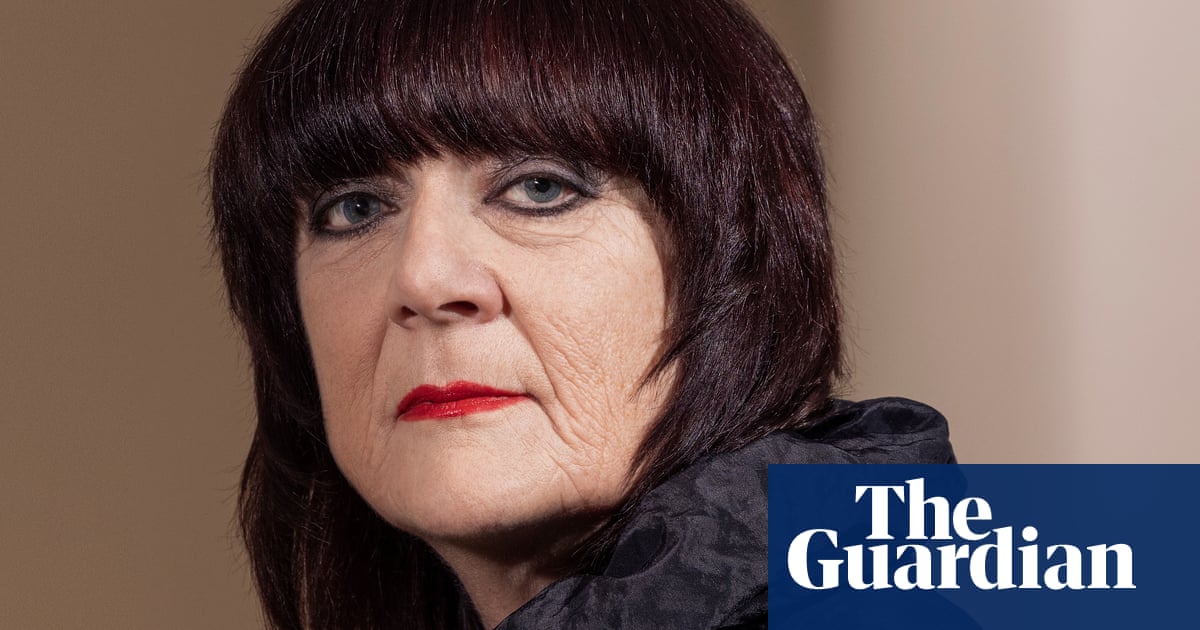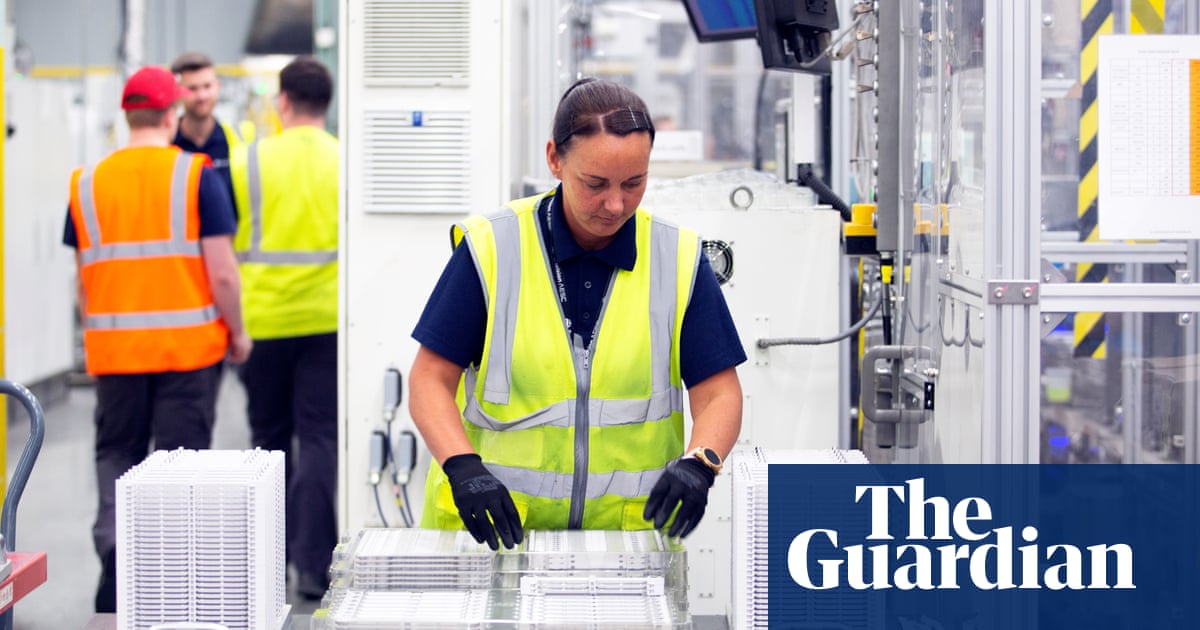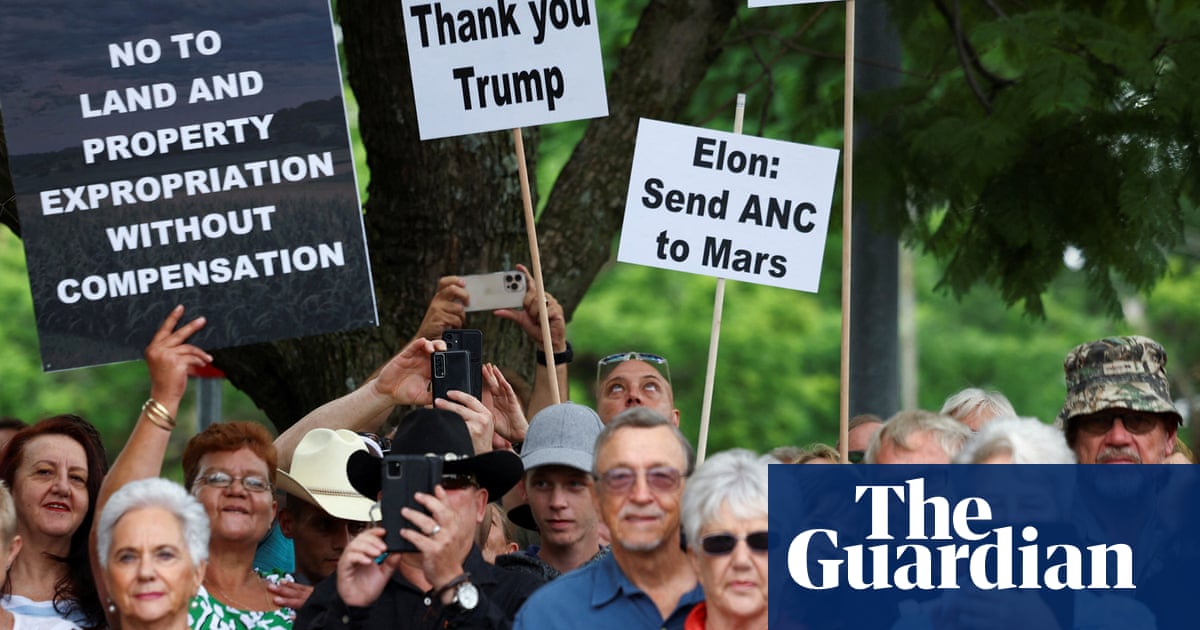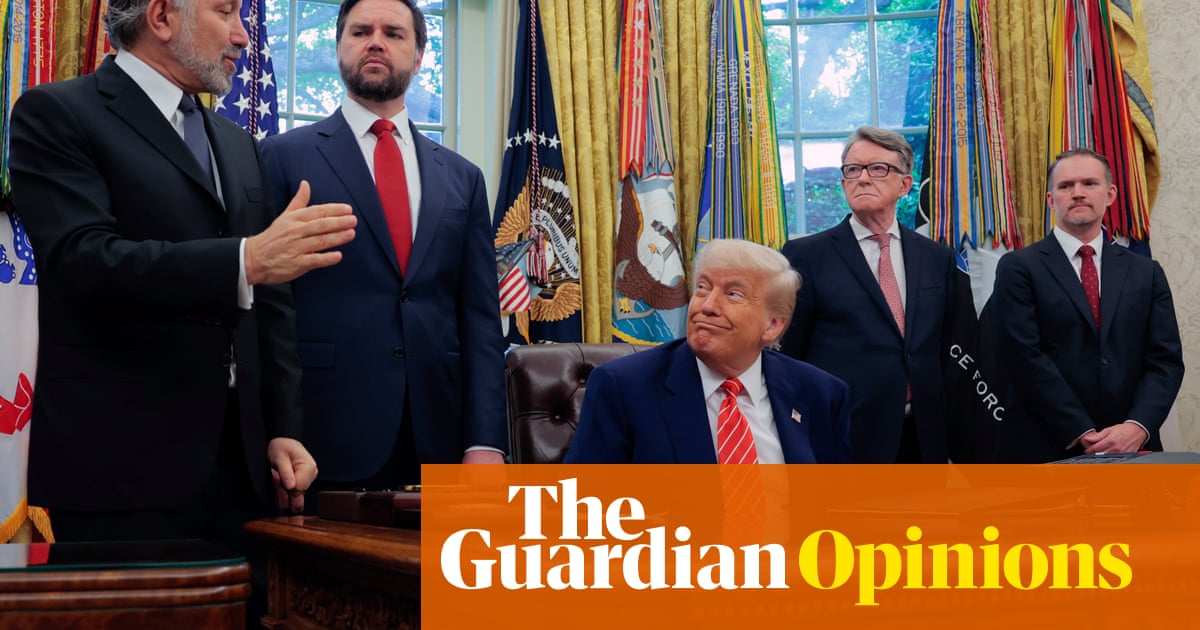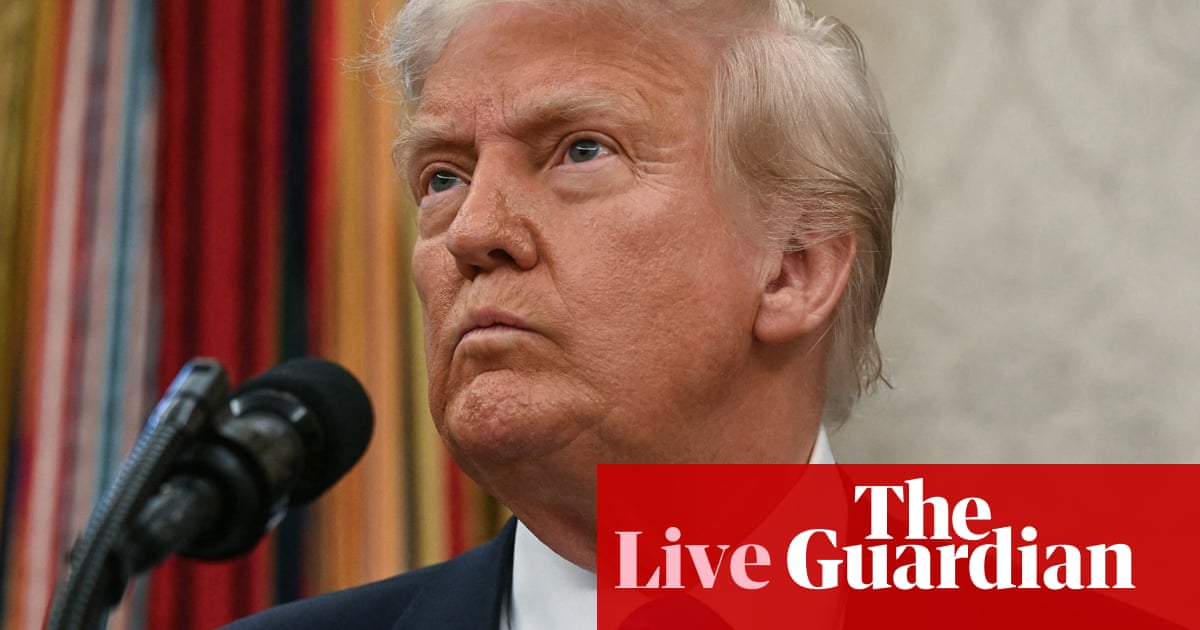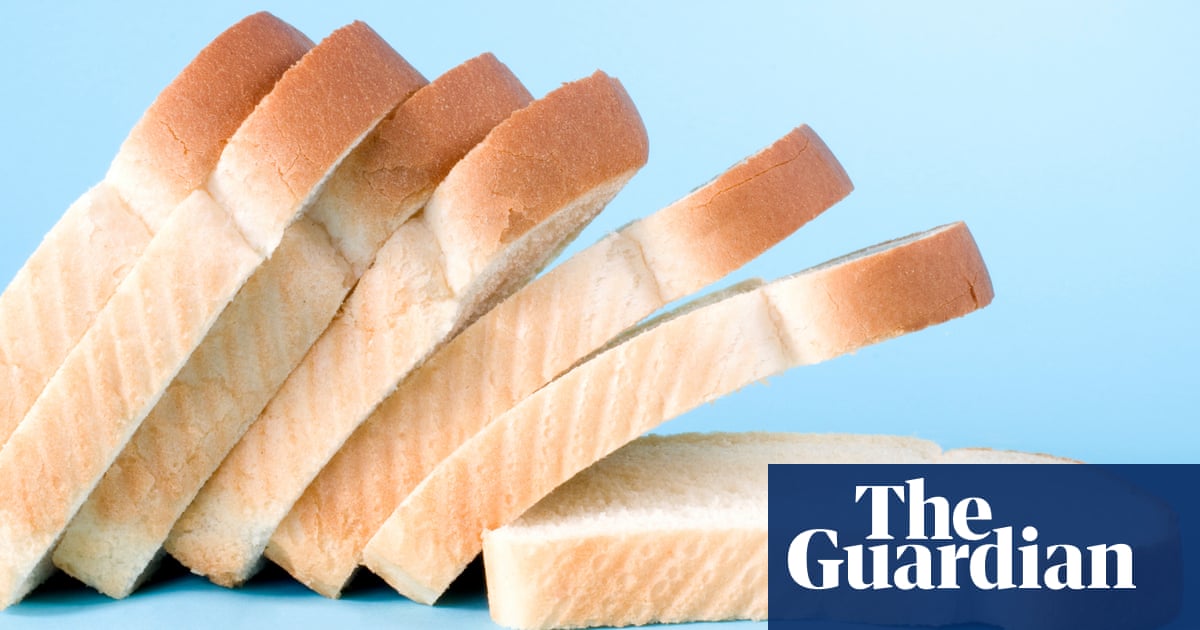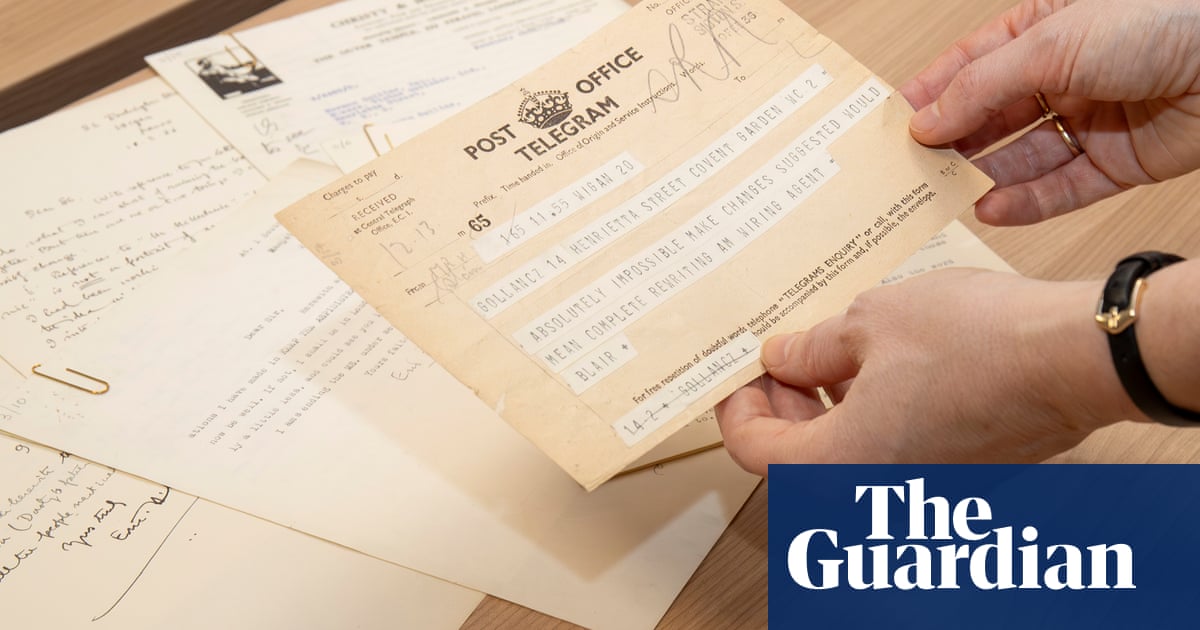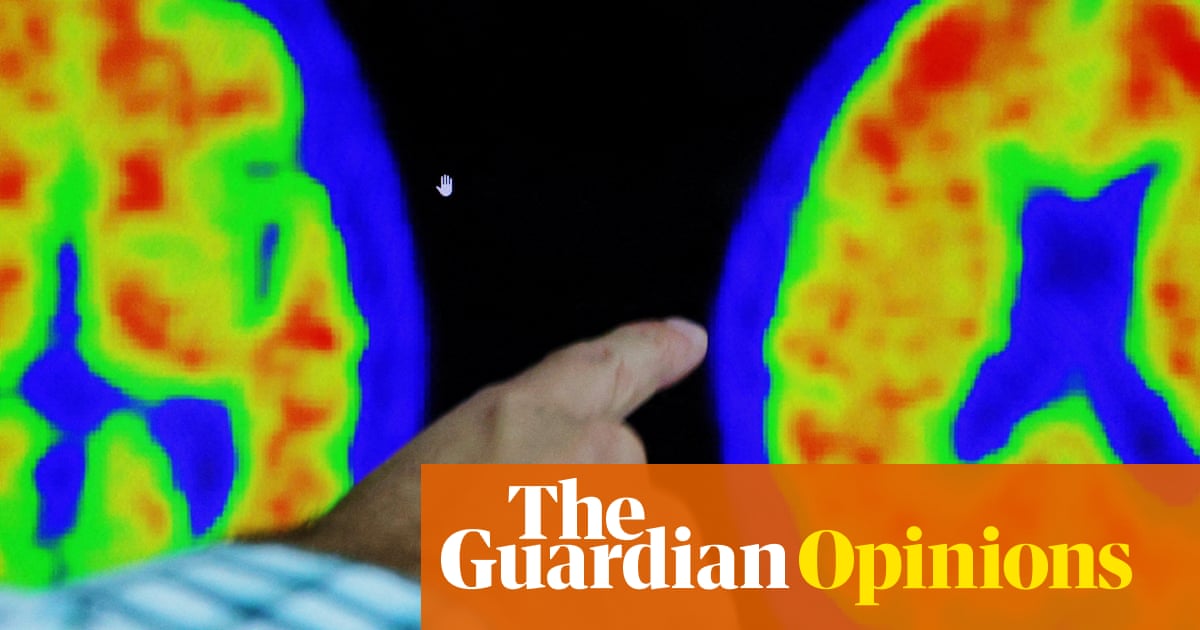Minister claims trade deal will save 150,000 jobs
The UK-US trade deal was urgently needed to protect as many as 150,000 livelihoods, a senior government minister said, as he insisted the agreement would be “really good for Britain”.
According to the PA news agency, Darren Jones, chief secretary to the Treasury, was resolute about the need to sign the deal, as he faced suggestions the UK still remained in a worse trading situation with the US than before Donald Trump introduced sweeping tariffs.
The deal removes tariffs on UK steel and aluminium imports to the US, and cuts the levy on cars from 27.5% to 10%, offering British luxury carmakers like Jaguar Land Rover a reprieve.
Business secretary, Jonathan Reynolds, indicated on Thursday night that thousands people were perhaps “days” away from losing their jobs without the deal.
Asked by BBC Breakfast on Friday morning if agreeing the deal was urgent, Treasury minister Jones said: “Yes. Yes, it was.”
Pressed if this was because of the threat of job losses, Jones added: “Of course, which is why it was so important that we’ve got the deal over the line.”
The minister also brushed aside suggestions the UK was no better off than before Donald Trump’s tariffs were first introduced. He told the BBC:
If I could rather be in a world where there were no tariffs, of course I would. But that’s just not the world that exists. So it’s not really an option on the table. The option on the table is to have not signed a trade deal with the United States and had higher tariffs, or to have signed a trade deal with the United States and had lower tariffs.
We’ve signed that trade deal. We’ve got lower tariffs in critical manufacturing sectors in the UK. 150,000 people’s livelihoods that we’ve protected as a consequence of that trade deal.
That is, by definition, factually better off as a consequence of the action that this government is taking to stand up for working people across the UK.
Jones later elaborated on BBC Radio 4’s Today programme, to signal the 150,000 figure included the families of those whose jobs may be affected in the car, steel and aluminium sectors.
Reynolds told Newsnight that “we were at risk of thousands of people losing their jobs” without an agreement, adding that this could have happened within “days”.
The deal was confirmed in a conversation between Keir Starmer and the US president that was broadcast live on both sides of the Atlantic on Thursday afternoon, coinciding with VE Day.
More on this story in a moment, but first, here are some other key developments in UK politics:
-
Sadiq Khan is announcing plans to build on parts of London’s green belt, in a dramatic shift in housing policy aimed at tackling “the most profound housing crisis in the capital’s history”. In a major speech on Friday, the mayor of London is expected to say the scale of the challenge, which could need about 1m new homes built in the next decade, requires a break from longstanding taboos.
-
The UK and US have agreed a “breakthrough” trade deal slashing some of Donald Trump’s tariffs on cars, aluminium and steel and that the prime minister said would save thousands of British jobs. Keir Starmer said it was a “fantastic, historic day” as he announced the agreement, the first by the White House since Trump announced sweeping global tariffs last month.
-
More than 40 Labour MPs have warned the prime minister that planned disability cuts are “impossible to support” and have called for a pause and change in direction. The letter from parliamentarians spanning the new intake and veterans, and from the left and right of the party, sets Keir Starmer up for the biggest rebellion of his premiership when the House of Commons votes on the measures next month.
Key events Show key events only Please turn on JavaScript to use this feature
UK must seek to 'rebuild' trade relationship with EU, says Bank of England governor
The governor of the Bank of England has said he hopes the UK can “rebuild” trade relationships with the EU after striking a trade deal with the US.
Andrew Bailey said it would be “beneficial” to reverse the post-Brexit reduction in UK-EU trade, reports the PA news agency.
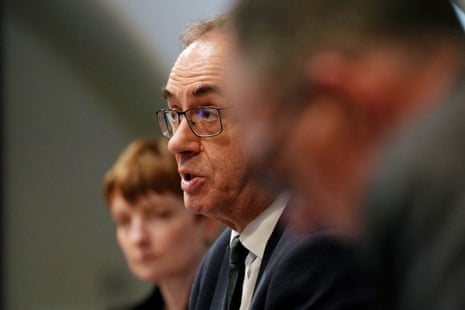
In an interview with the BBC, Bailey suggested that the UK-US trade deal secured on Thursday could set an example to nations around the world. He said:
It is important we do everything we can to ensure that whatever decisions are taken on the Brexit front do not damage the long-term trade position. So I hope that we can use this to start to rebuild that relationship.
He added:
It demonstrates that trade deals are important. Trade deals can be done, and the trade is important … honestly, it seems an unpromising landscape at times.
I hope that we can use these deals to rebuild the world trading system.
The government is in talks with the EU regarding its trade and security relationship, before a summit later in May. It comes after the Bank of England warned earlier on Thursday that original US tariff plans on the UK would have knocked 0.3 percentage points off UK economic growth over the next three years.
The Bank also warned that the global economy was set to grow at a slower pace than previously expected due to heightened global trade tensions. Meanwhile, the central bank reduced interest rates to a two-year low of 4.25% in the UK after a recent slowdown in inflation.
Plane engines and other aeroplane parts are excluded from trade tariffs as part of the US-UK trade deal, and British Airways’s parent company has already bought 32 new Boeing planes from the US, after the agreement, reports the PA news agency.
New reciprocal trade arrangements for agriculture have also been agreed, which will allow new access for American beef into the UK market. Ministers have however insisted there will be no downgrade in British food standards as a result of importing US meat.
The general terms for the deal were published late on Thursday, and stated that the UK and the US are “beginning negotiations” to “develop and formalise the proposals” that have been made. It also suggested that that either country could “terminate” the “arrangement” in the future with written notice, and it could be further altered in the future at the request of either side.
The UK’s digital services tax, which mainly applies to US tech companies, was not revised as part of the deal as had been speculated. The deal also does not include any concessions on the Online Safety Act or the NHS, the business secretary said.
In future, the UK will have “preferential treatment” when it comes to pharmaceuticals, as Donald Trump considers import taxes on drugs and medicines.
Shadow business secretary Andrew Griffith said the benefits the deal offered were “still very unclear” in many areas, after Conservative leader Kemi Badenoch claimed the UK had been “shafted” in the agreement.
Griffith told BBC Radio 4’s Today programme:
There’s some good elements to yesterday’s deal – I think the car industry and steel industry will welcome at least the reduction. But overall, it’s quite disappointing.
It’s still very unclear what happens to pharmaceuticals, a really big UK industry, there’s nothing on film and TV, and yet [at] the start of the week, the government was talking about 100% tariffs on that.
Minister claims trade deal will save 150,000 jobs
The UK-US trade deal was urgently needed to protect as many as 150,000 livelihoods, a senior government minister said, as he insisted the agreement would be “really good for Britain”.
According to the PA news agency, Darren Jones, chief secretary to the Treasury, was resolute about the need to sign the deal, as he faced suggestions the UK still remained in a worse trading situation with the US than before Donald Trump introduced sweeping tariffs.
The deal removes tariffs on UK steel and aluminium imports to the US, and cuts the levy on cars from 27.5% to 10%, offering British luxury carmakers like Jaguar Land Rover a reprieve.
Business secretary, Jonathan Reynolds, indicated on Thursday night that thousands people were perhaps “days” away from losing their jobs without the deal.
Asked by BBC Breakfast on Friday morning if agreeing the deal was urgent, Treasury minister Jones said: “Yes. Yes, it was.”
Pressed if this was because of the threat of job losses, Jones added: “Of course, which is why it was so important that we’ve got the deal over the line.”
The minister also brushed aside suggestions the UK was no better off than before Donald Trump’s tariffs were first introduced. He told the BBC:
If I could rather be in a world where there were no tariffs, of course I would. But that’s just not the world that exists. So it’s not really an option on the table. The option on the table is to have not signed a trade deal with the United States and had higher tariffs, or to have signed a trade deal with the United States and had lower tariffs.
We’ve signed that trade deal. We’ve got lower tariffs in critical manufacturing sectors in the UK. 150,000 people’s livelihoods that we’ve protected as a consequence of that trade deal.
That is, by definition, factually better off as a consequence of the action that this government is taking to stand up for working people across the UK.
Jones later elaborated on BBC Radio 4’s Today programme, to signal the 150,000 figure included the families of those whose jobs may be affected in the car, steel and aluminium sectors.
Reynolds told Newsnight that “we were at risk of thousands of people losing their jobs” without an agreement, adding that this could have happened within “days”.
The deal was confirmed in a conversation between Keir Starmer and the US president that was broadcast live on both sides of the Atlantic on Thursday afternoon, coinciding with VE Day.
More on this story in a moment, but first, here are some other key developments in UK politics:
-
Sadiq Khan is announcing plans to build on parts of London’s green belt, in a dramatic shift in housing policy aimed at tackling “the most profound housing crisis in the capital’s history”. In a major speech on Friday, the mayor of London is expected to say the scale of the challenge, which could need about 1m new homes built in the next decade, requires a break from longstanding taboos.
-
The UK and US have agreed a “breakthrough” trade deal slashing some of Donald Trump’s tariffs on cars, aluminium and steel and that the prime minister said would save thousands of British jobs. Keir Starmer said it was a “fantastic, historic day” as he announced the agreement, the first by the White House since Trump announced sweeping global tariffs last month.
-
More than 40 Labour MPs have warned the prime minister that planned disability cuts are “impossible to support” and have called for a pause and change in direction. The letter from parliamentarians spanning the new intake and veterans, and from the left and right of the party, sets Keir Starmer up for the biggest rebellion of his premiership when the House of Commons votes on the measures next month.

 6 hours ago
8
6 hours ago
8





